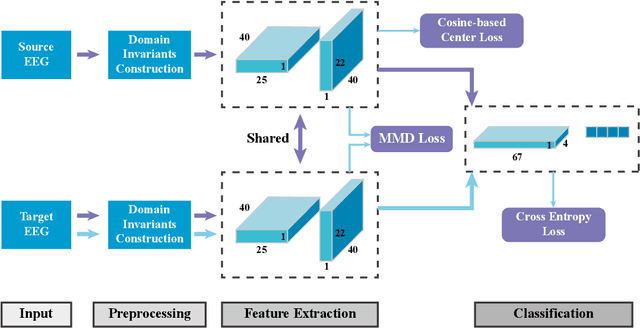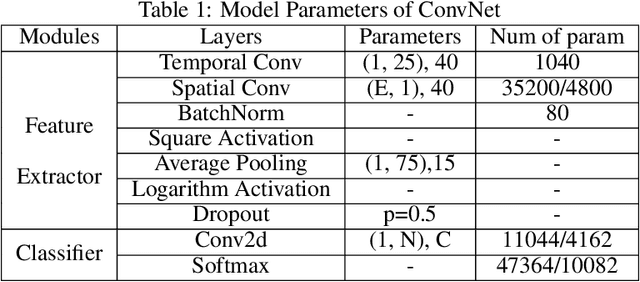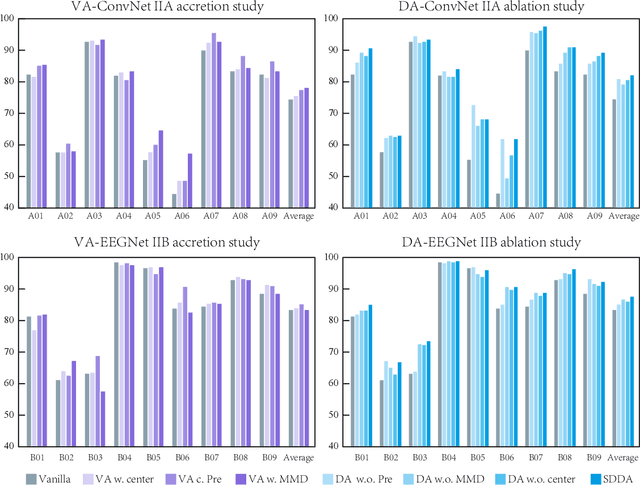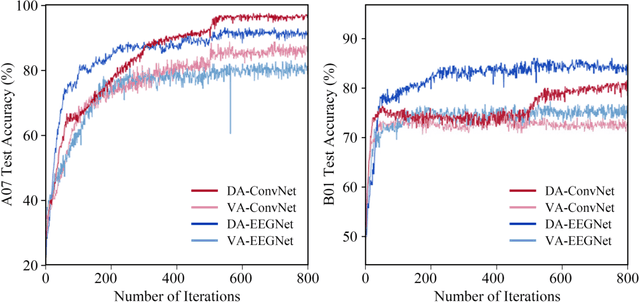Priming Cross-Session Motor Imagery Classification with A Universal Deep Domain Adaptation Framework
Paper and Code
Feb 19, 2022



Motor imagery (MI) is a common brain computer interface (BCI) paradigm. EEG is non-stationary with low signal-to-noise, classifying motor imagery tasks of the same participant from different EEG recording sessions is generally challenging, as EEG data distribution may vary tremendously among different acquisition sessions. Although it is intuitive to consider the cross-session MI classification as a domain adaptation problem, the rationale and feasible approach is not elucidated. In this paper, we propose a Siamese deep domain adaptation (SDDA) framework for cross-session MI classification based on mathematical models in domain adaptation theory. The proposed framework can be easily applied to most existing artificial neural networks without altering the network structure, which facilitates our method with great flexibility and transferability. In the proposed framework, domain invariants were firstly constructed jointly with channel normalization and Euclidean alignment. Then, embedding features from source and target domain were mapped into the Reproducing Kernel Hilbert Space (RKHS) and aligned accordingly. A cosine-based center loss was also integrated into the framework to improve the generalizability of the SDDA. The proposed framework was validated with two classic and popular convolutional neural networks from BCI research field (EEGNet and ConvNet) in two MI-EEG public datasets (BCI Competition IV IIA, IIB). Compared to the vanilla EEGNet and ConvNet, the proposed SDDA framework was able to boost the MI classification accuracy by 15.2%, 10.2% respectively in IIA dataset, and 5.5%, 4.2% in IIB dataset. The final MI classification accuracy reached 82.01% in IIA dataset and 87.52% in IIB, which outperformed the state-of-the-art methods in the literature.
 Add to Chrome
Add to Chrome Add to Firefox
Add to Firefox Add to Edge
Add to Edge